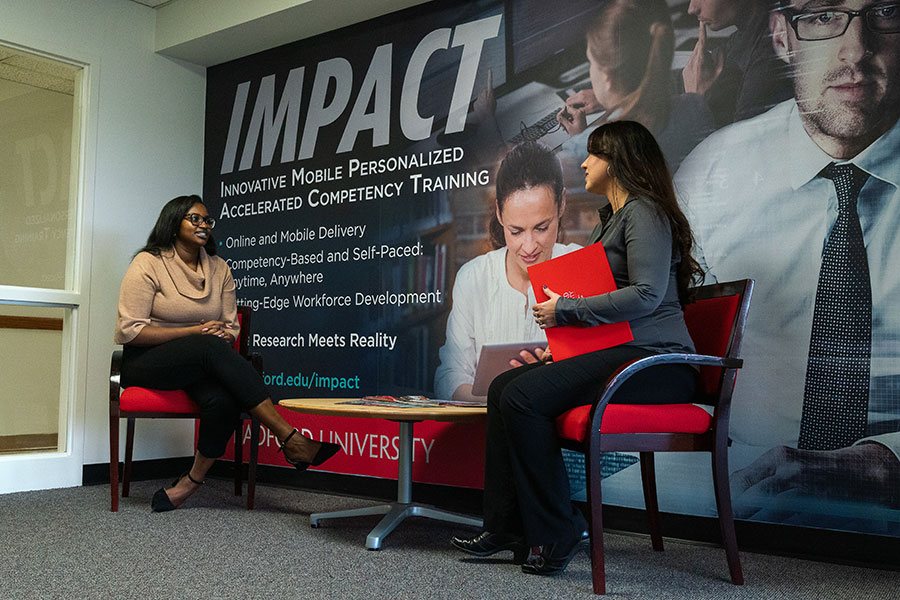Forbes lists Radford geospatial intelligence online certificate program among 2024’s best
by Chad Osborne
August 16, 2024

Forbes.com recently selected Radford University’s online geospatial intelligence (GEOINT) certificate among the top GIS programs in the United States.
In rankings released this summer, Forbes placed Radford University No. 3 on its list of Best GIS Certificates Online of 2024.
“Radford University offers a geospatial intelligence (GEOINT) certificate aligned with national standards and the core competencies set by the U.S. Geospatial Intelligence Foundation,” Forbes explained in a news release. “The program caters to working professionals and has no prerequisites beyond a high school diploma.”
Offered through the university’s Vinod Chachra IMPACT Lab in collaboration with the Department of Geospatial Science, the GEOINT curriculum is aligned with top industry certifications and provides extensive hands-on experience in geographic information systems (GIS), remote sensing, spatial analysis and GEOINT analysis.
The program prepares students for industry-aligned certification exams, certificates and other professional credentials. The GEOINT curriculum comprises competency-based, self-paced courses that equip learners for the geospatial intelligence field. Students in the program develop knowledge directly related to the core competencies of the Geospatial Technology Competency Model developed by the U.S. Department of Labor and the U.S. Geospatial Intelligence Foundation.
“We are excited about this recognition from Forbes as it speaks to the quality and convenience of our outstanding geospatial intelligence certificate,” said Matt Dunleavy, executive director of the Vinod Chachra IMPACT Lab. “With this increased visibility, we hope to serve professionals working in GIS fields with our online and self-paced training.”
Forbes ranked 17 accredited colleges and universities that offer online GIS certificates in the U.S. by gathering 12 data points in such categories as credibility, affordability, student outcomes and student experience. More information on the ranking methodology can be found at Forbes.com.
“This recognition highlights the hard work of the faculty to create engaging, self-paced educational material that effectively trains learners to leverage geospatial technology to make better data-driven decisions,” said Andrew Foy, professor of geospatial science.
Radford’s geospatial intelligence certificate program focuses on geospatial problem-solving skills, data fusion, geospatial technologies and their applications to disaster response, emergency management, infrastructure and resource management, military and policy operations, big data analysis and cybersecurity.
Students completing the certificate program can use geospatial analysis techniques, skills and tools to derive meaningful information from geospatial data, solve geospatial intelligence problems in multiple situations and communicate their findings in a professional manner to both professional and public audiences.
In addition to the geospatial intelligence certificate, Radford’s IMPACT Lab offers a certificate in cybersecurity and a credential in data science, as well as training for K-12 teachers.